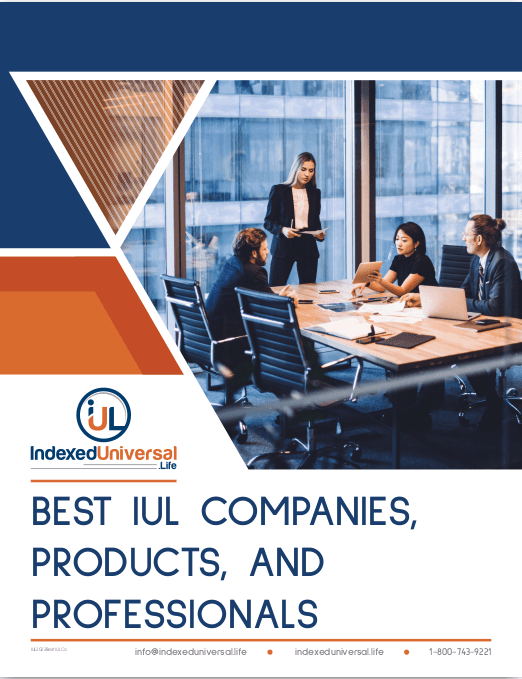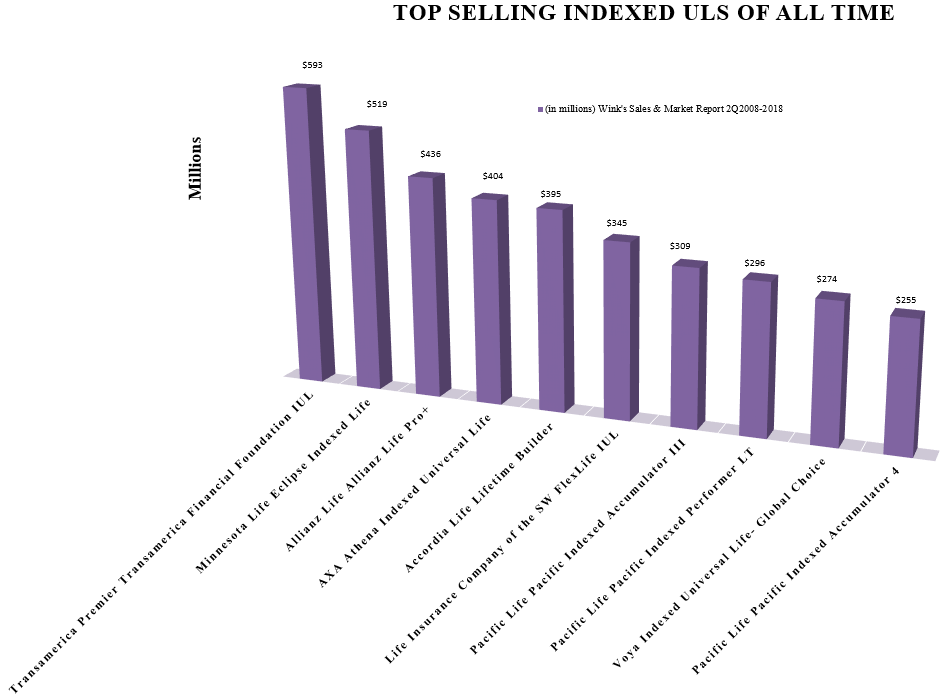All Categories
Featured
Table of Contents
Do they contrast the IUL to something like the Lead Overall Supply Market Fund Admiral Shares with no tons, an expense proportion (ER) of 5 basis points, a turn over ratio of 4.3%, and an exceptional tax-efficient document of circulations? No, they compare it to some awful proactively handled fund with an 8% load, a 2% EMERGENCY ROOM, an 80% turn over ratio, and a horrible document of short-term funding gain circulations.
Mutual funds frequently make yearly taxed distributions to fund owners, also when the value of their fund has actually decreased in value. Shared funds not just need income coverage (and the resulting annual tax) when the shared fund is going up in value, however can likewise enforce income taxes in a year when the fund has actually decreased in worth.
You can tax-manage the fund, harvesting losses and gains in order to lessen taxable circulations to the investors, however that isn't somehow going to transform the reported return of the fund. The possession of shared funds may call for the common fund owner to pay projected taxes (best iul).

IULs are simple to position to make sure that, at the owner's death, the recipient is exempt to either revenue or estate tax obligations. The exact same tax reduction strategies do not work almost as well with shared funds. There are various, typically costly, tax obligation catches connected with the moment purchasing and selling of shared fund shares, traps that do not use to indexed life insurance policy.
Possibilities aren't very high that you're mosting likely to undergo the AMT as a result of your mutual fund circulations if you aren't without them. The rest of this one is half-truths at best. While it is real that there is no earnings tax due to your beneficiaries when they inherit the profits of your IUL policy, it is additionally real that there is no revenue tax due to your beneficiaries when they inherit a common fund in a taxable account from you.
Cap Life Insurance
There are far better methods to stay clear of estate tax concerns than purchasing investments with reduced returns. Mutual funds might cause income taxation of Social Safety and security benefits.

The growth within the IUL is tax-deferred and may be taken as tax obligation complimentary earnings using finances. The plan owner (vs. the mutual fund manager) is in control of his/her reportable earnings, therefore enabling them to minimize or even get rid of the tax of their Social Safety benefits. This set is fantastic.
Below's one more minimal problem. It's true if you get a shared fund for say $10 per share simply before the circulation date, and it distributes a $0.50 circulation, you are after that going to owe taxes (possibly 7-10 cents per share) regardless of the fact that you have not yet had any type of gains.
In the end, it's truly concerning the after-tax return, not how much you pay in tax obligations. You are going to pay even more in taxes by utilizing a taxed account than if you get life insurance policy. You're additionally most likely going to have more money after paying those tax obligations. The record-keeping needs for having common funds are dramatically a lot more intricate.
With an IUL, one's records are kept by the insurance provider, duplicates of annual declarations are sent by mail to the proprietor, and distributions (if any kind of) are completed and reported at year end. This set is likewise type of silly. Certainly you should maintain your tax documents in instance of an audit.
Index Universal Life Insurance Reviews
Hardly a reason to purchase life insurance coverage. Mutual funds are generally part of a decedent's probated estate.
On top of that, they are subject to the delays and expenditures of probate. The earnings of the IUL plan, on the other hand, is always a non-probate circulation that passes beyond probate directly to one's called beneficiaries, and is therefore exempt to one's posthumous lenders, unwanted public disclosure, or similar delays and expenses.
We covered this under # 7, yet just to summarize, if you have a taxable shared fund account, you have to place it in a revocable trust fund (and even less complicated, make use of the Transfer on Death designation) to avoid probate. Medicaid disqualification and lifetime income. An IUL can offer their owners with a stream of earnings for their whole life time, despite how much time they live.

This is valuable when arranging one's affairs, and converting possessions to revenue before a retirement home confinement. Mutual funds can not be converted in a comparable manner, and are generally considered countable Medicaid possessions. This is another dumb one advocating that poor individuals (you understand, the ones who require Medicaid, a government program for the poor, to spend for their assisted living home) ought to make use of IUL rather than common funds.
The Cash Value In An Indexed Life Insurance Policy
And life insurance policy looks dreadful when contrasted rather against a pension. Second, individuals who have money to buy IUL over and past their retirement accounts are mosting likely to have to be terrible at handling cash in order to ever qualify for Medicaid to pay for their assisted living facility expenses.
Chronic and incurable illness cyclist. All policies will permit an owner's simple access to money from their plan, usually waiving any surrender penalties when such individuals experience a severe illness, need at-home treatment, or end up being restricted to a retirement home. Mutual funds do not offer a comparable waiver when contingent deferred sales charges still put on a common fund account whose proprietor requires to offer some shares to fund the prices of such a remain.
Iul Vs 401k Calculator
You get to pay even more for that benefit (motorcyclist) with an insurance coverage policy. Indexed global life insurance policy gives fatality benefits to the beneficiaries of the IUL proprietors, and neither the owner nor the recipient can ever lose money due to a down market.
Now, ask yourself, do you actually require or desire a survivor benefit? I definitely don't need one after I get to monetary self-reliance. Do I desire one? I expect if it were economical enough. Naturally, it isn't affordable. Generally, a purchaser of life insurance policy spends for real price of the life insurance coverage advantage, plus the prices of the plan, plus the earnings of the insurance policy company.
Universal Indexed Life Insurance
I'm not totally sure why Mr. Morais tossed in the entire "you can not shed cash" once more below as it was covered quite well in # 1. He simply intended to duplicate the most effective selling factor for these points I expect. Once again, you do not lose nominal dollars, yet you can lose genuine dollars, in addition to face major opportunity cost because of reduced returns.

An indexed universal life insurance policy plan proprietor might trade their plan for a totally different policy without causing income taxes. A shared fund owner can stagnate funds from one common fund firm to another without selling his shares at the former (therefore setting off a taxed occasion), and buying new shares at the last, commonly based on sales costs at both.
While it is true that you can exchange one insurance plan for an additional, the factor that individuals do this is that the very first one is such a horrible policy that also after buying a brand-new one and going with the very early, adverse return years, you'll still come out ahead. If they were sold the best policy the very first time, they should not have any type of need to ever exchange it and undergo the early, unfavorable return years again.
Latest Posts
Iul As A Retirement Vehicle
What Is The Difference Between Whole Life Insurance And Universal Life Insurance
Nationwide Indexed Universal Life Accumulator Ii